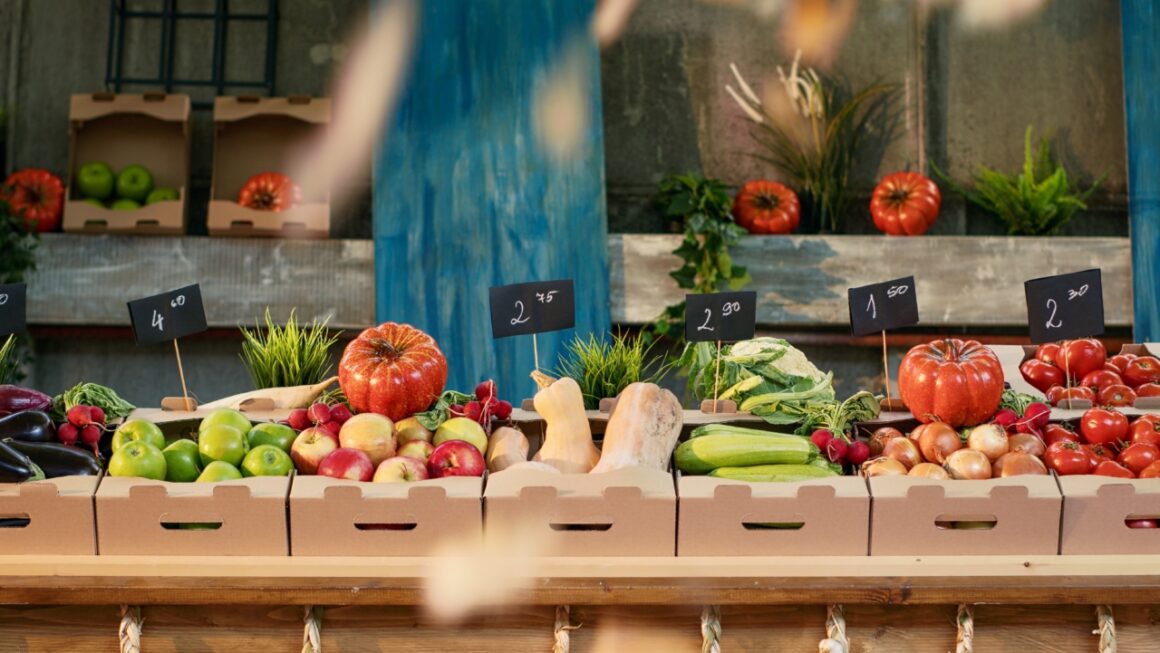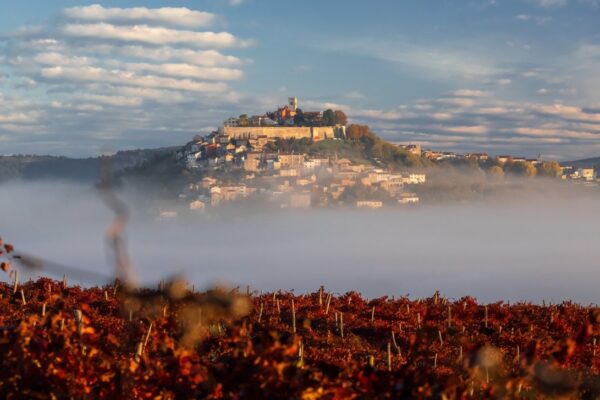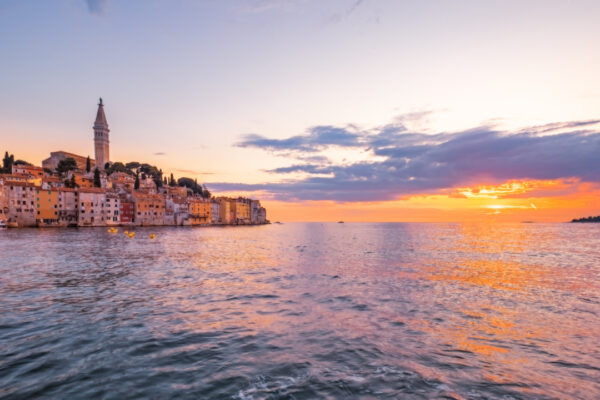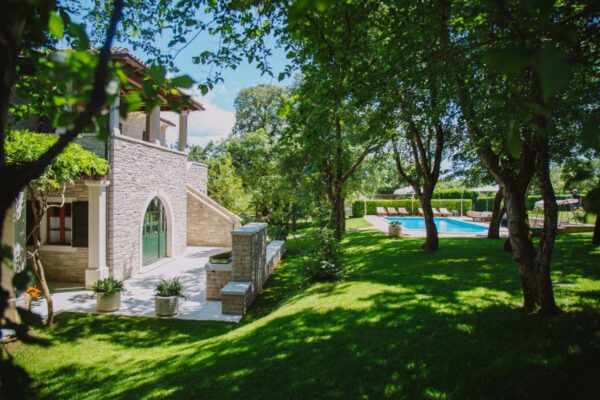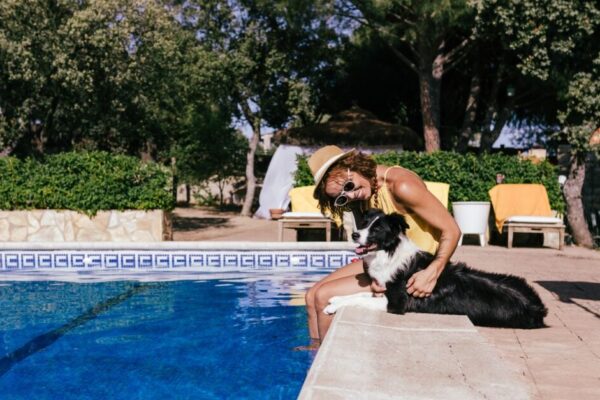Local shopping is an essential part of experiencing the culture while staying in a new region. Many people enjoy tasting local specialties in restaurants during vacation, but if you want to take it a step further and shop like a true local in Istria, Dalmatia or Kvarner, you can combine pleasure with practicality. By doing so, you can try indigenous ingredients, feel the pulse of local culture, and support small producers.
To shop like the locals and avoid tourist traps in Croatia, consider buying from local wineries, smaller shops and crafts made from fresh local ingredients. Read on for practical tips on how to shop in Croatia and where to go to buy authentic local produce.
1. Cash or credit?
If you’ve never been to Croatia before, this information will help you make the most of your shopping experience. The Euro is the currency used in Croatia and credit cards are widely accepted. However, it is advisable to carry cash when shopping at smaller shops, bakeries and markets.
The stores generally follow European working hours, except on Sundays. Croatian shops choose 16 Sundays out of the year to stay open for business. In tourism-driven regions, most shops will keep their Sundays open during the summer months. Still, it is advisable to do your shopping during the rest of the week. Markets are an important part of the local shopping experience and are open every Sunday.
The price displayed in stores includes VAT and is final, but haggling is common at markets. This is an opportunity to test your negotiation skills with a friendly approach. If any questions come up, you can feel free to ask the salesperson – most of them speak English, German or Italian especially in tourist hotspots.
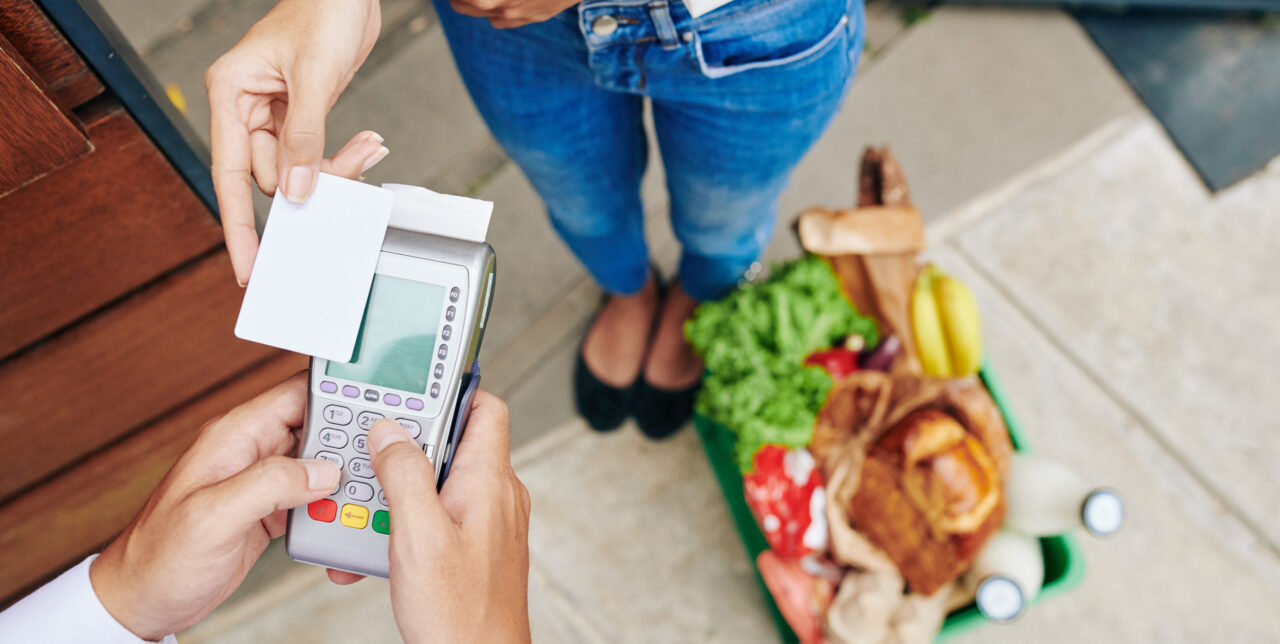
Card payments are accepted in most shops.
2. Visit the farmers’ market
Farmers’ markets are particularly connected to local communities. Visit your local market to support local producers and be part of the town’s bustle. You might even get the chance to taste something new. In different Croatian regions, they are known as plac, pijaca, pazar, or placa. In addition to standard fresh foods, you can find local cheeses, sausages, prosciutto, homemade olive oil, pasta, honey and liqueurs.
Most main markets in coastal Croatian towns are in the old town centre, which is the lifeblood of local life. If you are in Pula or Split, visit their famous city markets for the products, atmosphere and unique Art Nouveau buildings.
The markets are open every day, usually from early morning until 2 or 3 p.m., and may have shorter hours on Sundays and holidays. Towards the end of working hours, prices may be much lower.
However, bargaining could result in a better deal at any time. Just remember to bring cash. If you are planning to take a ferry to one of the islands, we also recommend that you buy your produce at a market on the mainland. Prices are likely to be higher once you are on the island.
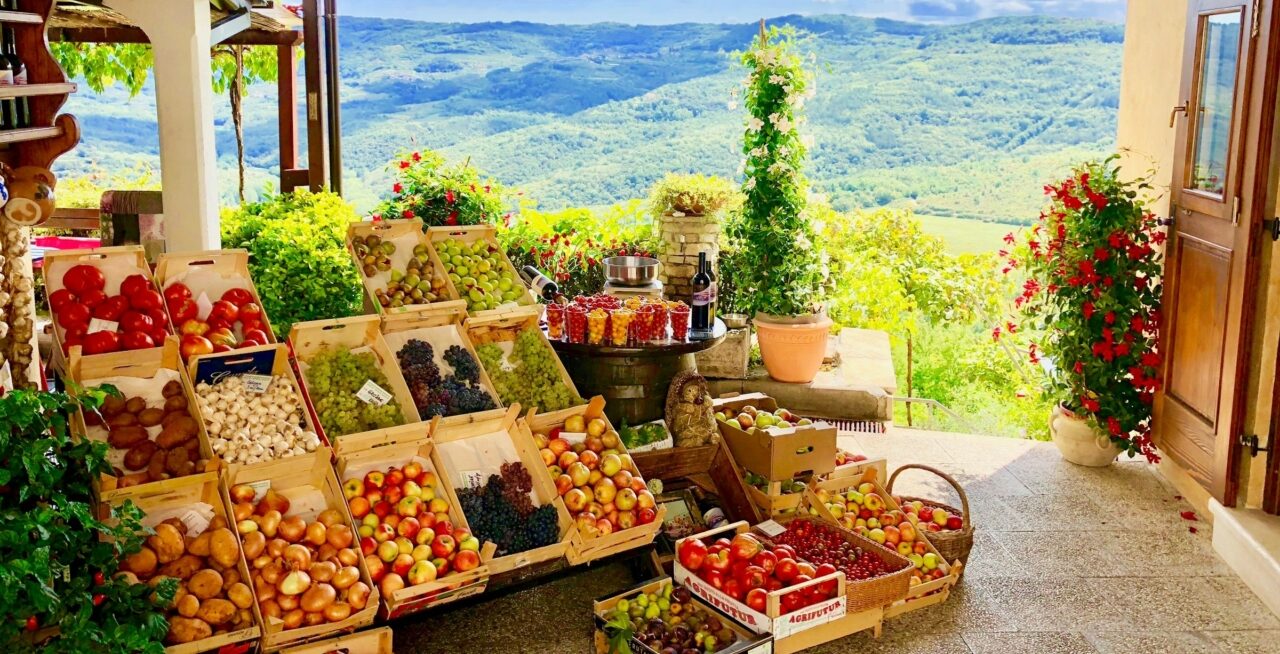
Panoramic view of a farmers’ market in Motovun
3. At the crack of dawn, off to the fish market
In the coastal towns of Istria, Dalmatia and Kvarner, the fish market is considered the heart of local gastronomy. It’s usually located right by the farmers’ market, mostly in the market building. For the best chance of getting the freshest fish and shellfish, get up early and head for the market at the crack of dawn. Alternatively, you can visit the market at closing time, when everything is on sale at discount prices. However, you may not find what you want if you arrive later in the day, as much of the supply is sold out by early morning.
Pula’s fish market is located on the ground floor of a beautiful Art Nouveau building and is considered one of the most modern. Similarly, Split’s main fish market, known as peškarija, is located in an interesting architectural monument built over 120 years ago. Rijeka is famous for its lively fish market in two pavilions – even if you’re just passing through, it’s worth wandering around.
To really shop like a local, look out for the cheaper fish – most of the expensive ones is bought by restaurants anyway. Oily fish like sardines and mackerel are delicious, have many health benefits and won’t break the bank. When purchasing fish, ensure that the gills are bright red, the eyes are clear and the body is limber. This is your guarantee that the fish you are buying is fresh. Also, ask experienced fishermen for advice on how best to prepare the fish for an authentic meal.
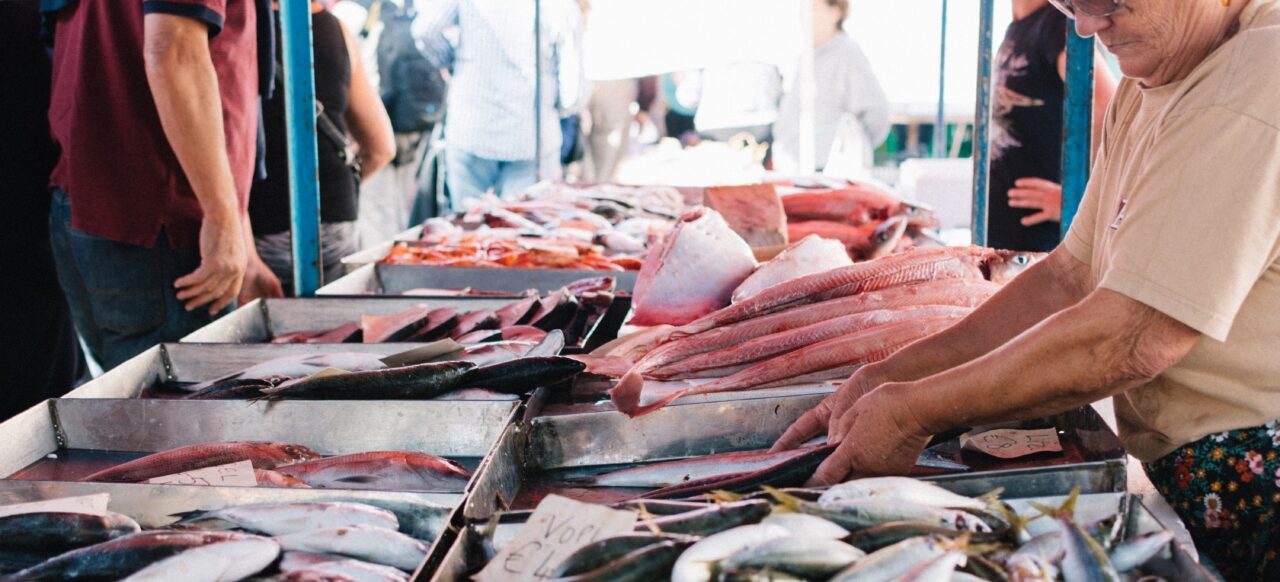
Once you’ve visited the farmers’ market, make your way to the fish market.
4. Visit specialized shops with local products
During your stay in Croatia, try to visit small shops with local products instead of shopping in chain stores. Local products are usually of better quality and can make unique souvenirs. You can find Istrian truffle spreads, the Rab cake, the Pag cheese, sage tea from Kornati and more. By buying local products, you are also supporting local producers and helping to preserve local traditions.
These specialized shops often act as a bridge between family-owned farms and buyers from all over the world. For example, the shop Butiga in Kaštelir, Istria, promotes sustainable tourism by encouraging the concept of ‘zero kilometers,’ which minimizes the distance between the producer and the store. Similarly, local shops such as Lokalitet in Pula also have online stores where you can order a wide range of products from family farms.
Boutique butchers such as Arman in Poreč and Taj bucheraj in Dubrovnik also belong to this type of shop, selling only naturally grown meat from Croatian farms. They also sell local delicacies such as cheese, olive oil, jams and wines.
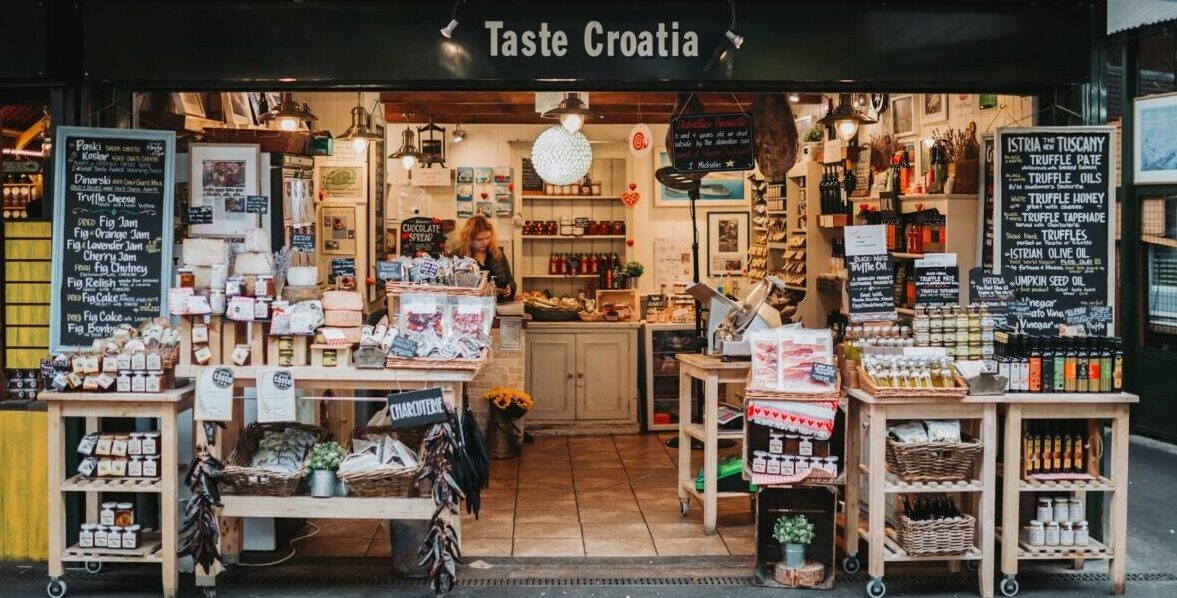
For authentic Croatian souvenirs, local shops are the place to go.
5. Cut out the middleman – visit the producer
Buying directly from the farm or winery is a unique experience that supports their work in the best possible way. During your visit, you have the opportunity to meet the producers and hear their story firsthand. If you are looking for local produce, farms such as OPG Vivoda in Motovun offer the chance to pick your own fruit, buy it on the spot and even treat yourself to some homemade fruit liqueur.
Cheese lovers should visit one of the cheese farms. Here you can get to know the goats, cows and sheep that receive a lot of care and attention. If you are in Istria, you must try the goat cheese and other products of Stancija Kumparička, known worldwide for their top quality.
Additionally, you can visit one of the prosciutto factories along the way. Tinjan in Istria is famous for its homemade prosciutto, and you can easily find producers such as OPG Pršuti Milohanić. They will be happy to offer you their award-winning meat products. If you’re looking for truffles and truffle products, head to the interior of Istria. Along the entire Croatian coast, you’ll find family-owned farms that produce wine, olive oil and sweets that are typical of the area.
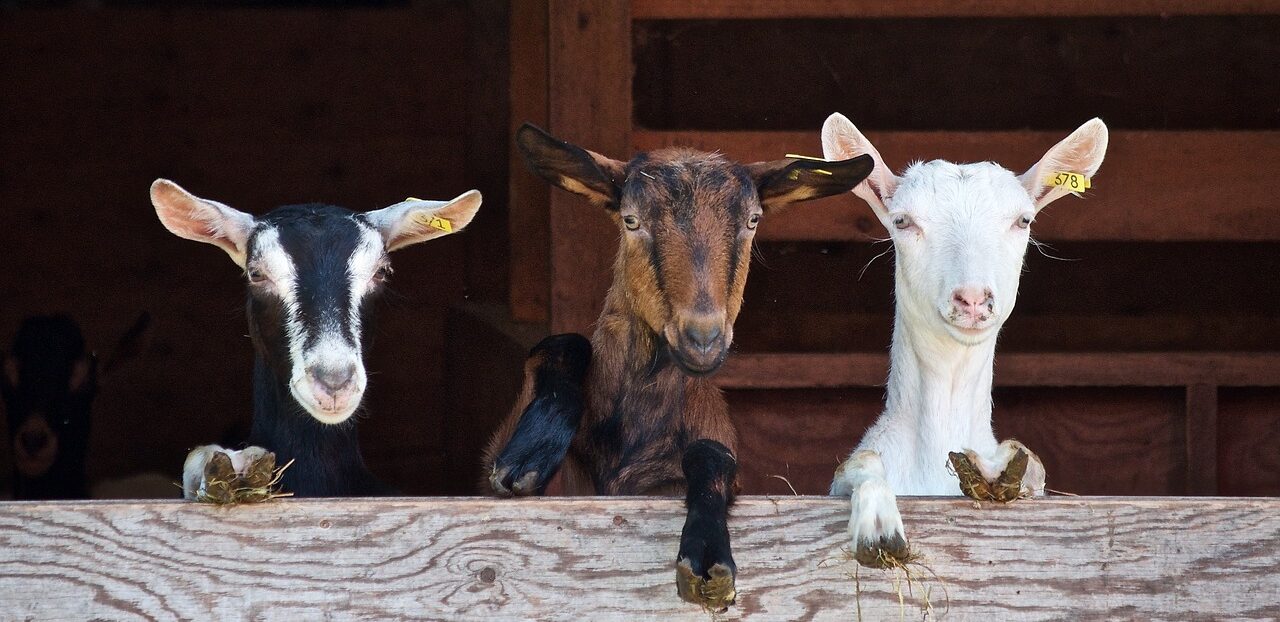
You can buy authentic local products directly from the farm – goat cheese is produced throughout Croatia.
6. Ask a local
For buying local products, locals are the best guides. They know which local producers, family farms and local delicacies make up the soul of their place. They can point you to the market stall with the tastiest fruit, the finest olive oil and the neighbour who sells the best homemade liqueurs. If you’re lucky, they might even put you in touch with fishermen they know and arrange for you to buy fresh fish as soon as it’s caught.
Talking to locals can help you discover hidden gems that tourists often miss and connect with the authentic character of the place. If you’re staying in a villa this summer, don’t hesitate to ask your host or villa owner for advice. This will undoubtedly help you shop like a true local.
Authentic experience enhanced with rustic villa
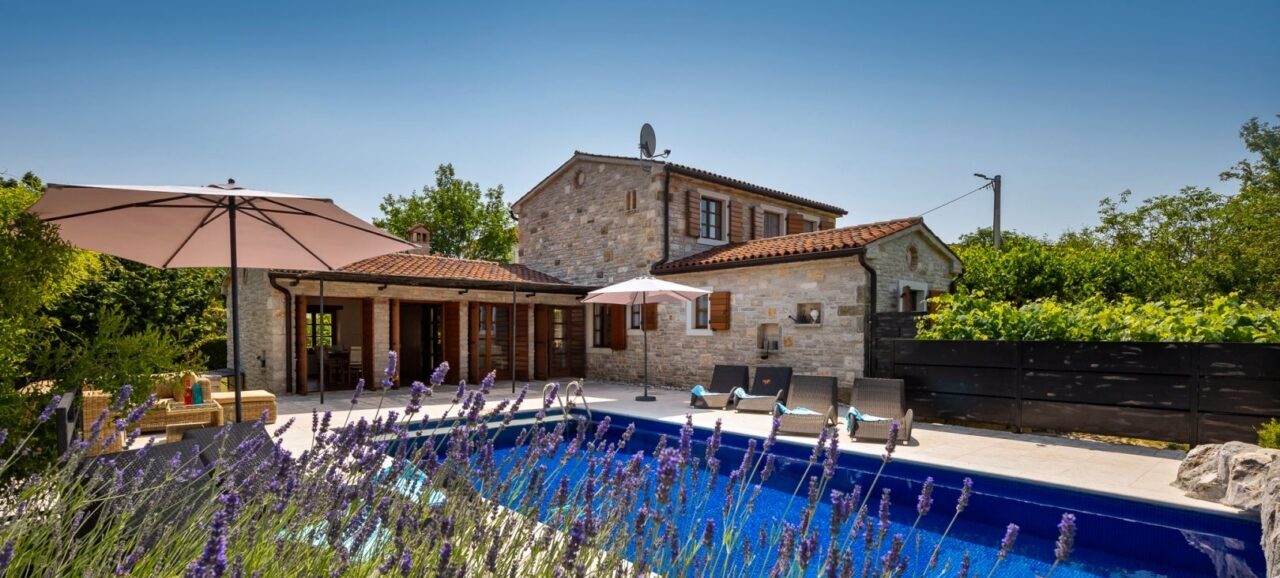
Vila Casa Nonna Lucia****, Istra
Shopping locally is a great way to experience the culture of your destination. To do this, follow these simple tips when vacationing in Istria, Dalmatia or Kvarner: visit a colourful market, wake up early for fresh fish, buy souvenirs from local shops and head for the family-owned farms, cheesemakers, wineries and prosciutto shops. However, asking locals for advice on what’s good and avoiding tourist traps is perhaps the most important tip of all.
After purchasing fresh local produce, you can return to your villa and prepare a meal based on the locals’ tips. Cooking in your villa’s fully equipped kitchen will be a real treat. Our collection of rustic villas offers just that and is perfect if you’re looking for accommodation that embodies local tradition. Soak up the atmosphere of your destination with stone walls, wooden beams and antiques combined with a swimming pool and all the modern conveniences.
Throughout your authentic holiday, don’t forget to embrace local shopping as a way to connect with people and traditions, and keep your curiosity alive. Happy shopping! 🙂
